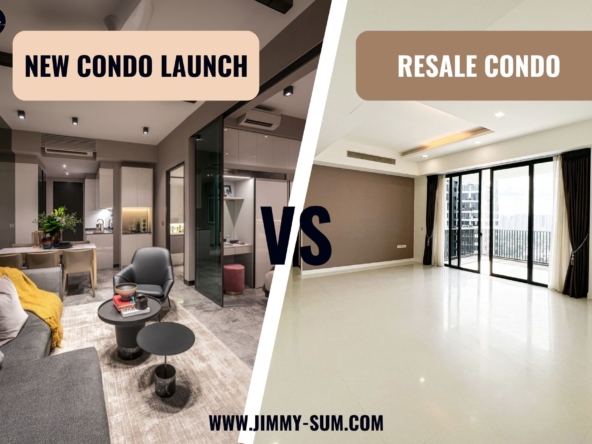The decision between renting and buying property in Singapore holds great significance due to the country’s unique property market dynamics. Singapore is known for its high property prices and limited land availability, making it crucial to carefully consider the financial and lifestyle implications of each option.
The choice between renting and buying can have a long-lasting impact on your financial well-being, as property is often a significant investment. It is essential to evaluate the advantages and disadvantages of both options to make an informed decision that aligns with your goals and circumstances.
Lifestyle factors play a key role in determining whether renting or buying property is the best option for you. Your lifestyle preferences, financial situation, long-term plans, and personal circumstances all contribute to this decision-making process.
Advantages of Renting a Property
A. Flexibility and Mobility
- Freedom to Move Locations Easily
Renting a property in Singapore provides the freedom to move locations easily. Whether you want to explore different neighborhoods, experience a new area, or simply have the flexibility to relocate for work or personal reasons, renting allows you to do so without the constraints of owning a property. You can easily find a new rental property that suits your needs and preferences, without the hassle of selling a home or dealing with the complexities of the property market.
- Flexibility for Lifestyle Changes
Renting offers flexibility for lifestyle changes. As your life circumstances evolve, such as starting a family, changing jobs, or pursuing new opportunities, renting allows you to adapt your living situation accordingly. You can easily upgrade to a larger space to accommodate a growing family or downsize to a smaller unit for a more minimalist lifestyle or even having a co-living experience. Renting provides the flexibility to align your living arrangements with your changing lifestyle needs and preferences, without the long-term commitment of homeownership.
B. Lower Initial Cost and Financial Commitment
- Relieves the Burden of a Large Down Payment
Renting relieves the burden of a large down payment that is typically required when buying property in Singapore. Instead of tying up a significant amount of capital in a property, renting allows you to allocate your funds towards other investments, savings, or experiences. This can be particularly beneficial for individuals who are just starting their careers, have limited savings, or prefer to have more financial flexibility in managing their resources.
- Reduced Financial Risk and Commitment
Renting a property also entails reduced financial risk and commitment compared to buying. When you rent, you are not exposed to the fluctuations in property values, which can be a significant risk in a volatile market. Additionally, you are not responsible for the costs of property maintenance and repairs, except for some minor repairs that will be under your responsibility. Landlords typically bear the responsibility for these expenses, relieving you from the financial burden of unexpected repairs or renovations. This reduced financial risk and commitment can provide peace of mind and allow you to focus on other financial goals or lifestyle choices.
Advantages of Buying a Property
A. Long-term Investment and Potential Appreciation
- Long-term Financial Gains
One of the primary advantages of buying a property is the potential for long-term financial gains. Real estate has historically been a solid investment, with properties generally appreciating in value over time. By purchasing a property, you have the opportunity to build equity and accumulate wealth over the long term. As you pay off your mortgage, your ownership stake in the property increases, providing you with a valuable asset that can contribute to your overall financial portfolio.
- Potential for Property Value Appreciation in Singapore
Singapore’s property market has shown a history of strong appreciation, making it an attractive investment opportunity. Factors such as limited land supply, population growth, and government policies like the latest cooling measures, supporting sustainable property development contribute to the potential for property value appreciation. Buying a property in Singapore allows you to potentially benefit from this appreciation, providing you with a significant return on investment over time.
B. Customization and Personalization
- Freedom to Make Structural and Design Changes
Buying a property gives you the freedom to make structural and design changes according to your preferences. Unlike renting, where you may have limitations on modifications, owning a property allows you to customize and renovate the space to suit your needs and lifestyle. Whether it’s knocking down walls to create an open-concept living area, adding an extension, or redesigning the kitchen, owning a property gives you the creative freedom to transform the space into your dream home.
- Ability to Personalize and Create a Home
Homeownership allows you to personalize and create a home that reflects your unique style and preferences. From choosing the color scheme and flooring materials to selecting fixtures and furnishings, you have complete control over the aesthetics and ambiance of your living space. This ability to create a home that truly represents your personality and taste is a significant advantage of buying a property.
C. Stability and Control
- Stability and Security of Owning a Property
Buying a property provides stability and security that renting may not offer. As a homeowner, you have the peace of mind of knowing that you have a permanent place to call home. You are not subject to potential rent increases or the uncertainty of having to move when a lease expires. Homeownership provides stability and a sense of belonging to a community, allowing you to establish roots and build relationships with neighbors and local businesses.
- Control over Living Arrangements and Renovations
Homeownership offers you control over your living arrangements and the ability to make renovations as desired. You can choose the layout, size, and location of your property based on your specific needs and preferences. Additionally, you have the freedom to make renovations and improvements to enhance your living experience and increase the value of your property. This control over your living space allows you to create a comfortable and functional environment that suits your lifestyle.
Financial Considerations
A. Rent vs. Mortgage Payments
- Cost Comparison between Rental Payments and Mortgage Payments
When considering the financial aspects of renting versus buying a property, it is important to analyze the cost comparison between rental payments and mortgage payments. Rent payments are typically fixed for the duration of the lease, while mortgage payments can vary based on interest rates and the length of the loan. However, over time, as you pay down your mortgage, your equity in the property increases, whereas rent payments do not contribute to building equity.
B. Additional Costs and Expenses
- Potential Extra Costs Associated with Homeownership
Homeownership comes with additional costs and expenses that should be taken into account. These may include property taxes, insurance, maintenance, and potential homeowner association fees. Property taxes can vary depending on the location and value of the property, while insurance costs can protect your investment in case of unforeseen events like natural disasters or accidents. Maintenance costs, such as repairs, renovations, and regular upkeep, are the responsibility of the homeowner. These additional expenses should be factored into your budget when considering the financial implications of buying a property.
- Potential Savings Associated with Renting
Renting can offer potential savings compared to homeownership. As a renter, you are not responsible for property taxes, insurance, or major maintenance costs. Additionally, you may have more flexibility in terms of moving to a more affordable location or downsizing if needed. Renting can provide a more predictable monthly expense, allowing you to allocate your funds towards other financial goals or investments. However, it is important to note that renting does not offer the opportunity to build equity or benefit from potential property value appreciation.
C. Job and Income Stability
- Stability of Employment and Income
Job and income stability play a crucial role in the decision between renting and buying. If you have a stable job with a steady income, buying a property can be a viable option. Owning a home provides a sense of security and can be seen as a long-term investment. However, if your employment situation is uncertain or you anticipate changes in your income, renting may be a more suitable choice. Renting offers flexibility and less financial commitment, allowing you to adapt to potential career changes or fluctuations in income.
- Importance of Financial Stability
Financial stability is essential when considering homeownership. Buying a property requires a significant financial commitment, including a down payment, mortgage payments, and additional costs associated with homeownership. It is important to have a stable financial foundation, including a secure income, emergency savings, and manageable debt levels. Assessing your financial stability and ensuring that you can comfortably afford the costs of homeownership is crucial to avoid potential financial stress or difficulties in the future.
D. Financial Goals and Priorities
- Personal Financial Goals in Relation to Renting or Buying
Your personal financial goals should be considered when deciding between renting and buying. If your primary focus is on short-term savings or investments, renting may be more suitable. Renting allows you to allocate your funds towards other financial goals, such as building an emergency fund, investing in stocks or other assets, or pursuing higher education. On the other hand, if your long-term financial goal is to build equity and accumulate wealth through property ownership, buying a property can be a strategic choice.
- Impact on Saving and Wealth Accumulation
Renting and buying have different implications for saving and wealth accumulation. Renting may provide more immediate savings, as you are not responsible for additional costs associated with homeownership, such as property taxes, insurance, and maintenance. However, buying a property allows you to build equity over time and potentially benefit from property value appreciation. It can be seen as a long-term investment that contributes to your overall wealth accumulation. Assessing your financial goals and priorities will help determine whether renting or buying aligns better with your desired saving and wealth accumulation strategies.

Local Market Conditions and Trends
- Real Estate Trends in Singapore
Understanding the real estate trends in Singapore is crucial when considering renting or buying property. Singapore’s property market has experienced fluctuations over the years, influenced by factors such as economic conditions, government policies, and global market trends. It is important to stay informed about the current state of the market, including factors such as property prices, rental rates, supply and demand dynamics, and government regulations. By keeping track of real estate trends, you can make more informed decisions about the timing and feasibility of renting or buying a property in Singapore.
- Property Market Conditions and Forecasts
Evaluating the property market conditions and forecasts is essential for making informed decisions. Property market conditions can vary based on factors such as location, property type, and market demand. It is advisable to research and analyze data on property price trends, rental yields, and vacancy rates in the specific area of interest. Additionally, considering market forecasts and expert opinions can provide insights into the future direction of the property market. Understanding the current conditions and forecasts can help you gauge the potential risks and opportunities associated with renting or buying property in Singapore.
Conclusion
Throughout this discussion, we have explored various factors to consider when deciding between renting and buying property in Singapore. We have examined financial considerations, lifestyle factors, and the importance of evaluating local market conditions and trends. Key points include analyzing the cost comparison between rental payments and mortgage payments, assessing additional costs and expenses associated with homeownership, considering the duration of stay and its impact on lifestyle choices, evaluating job and income stability, and aligning personal financial goals and priorities with renting or buying decisions.
It is essential for you to carefully evaluate your own lifestyle, financial situation, and long-term goals when making a decision about renting or buying property in Singapore. Each individual’s circumstances are unique, and what may be suitable for one person may not be the best choice for another. By taking into account factors such as personal preferences, financial stability, market conditions, and future plans, you can make an informed decision that aligns with their needs and aspirations.
It is recommended to seek professional advice, conduct thorough research, and weigh the pros and cons before making a final decision on renting or buying property in Singapore.




